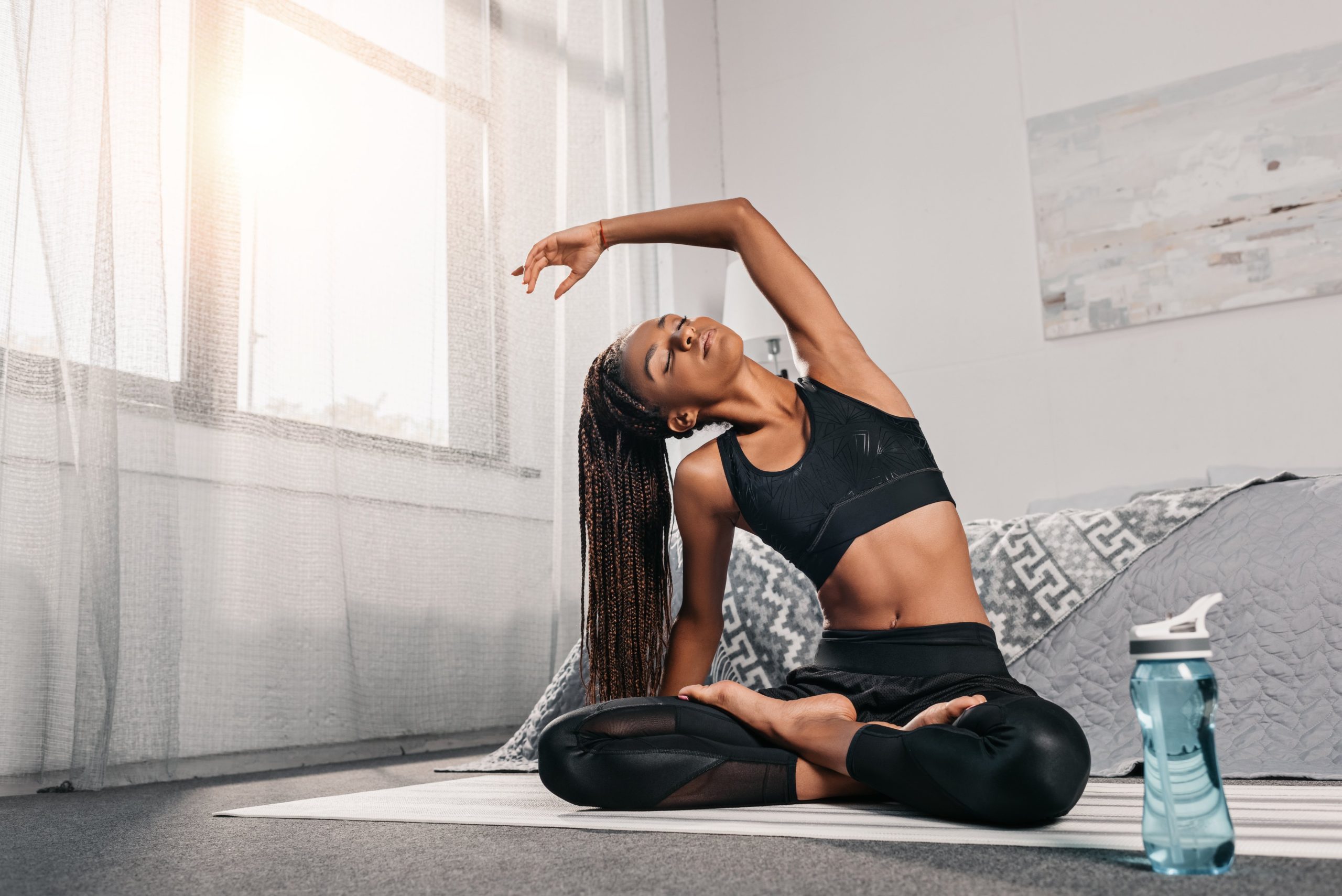The Benefits of Practicing Yoga
Yoga is one of the most effective exercises that you can do to improve your overall physical and mental health. The practice of yoga also helps to cultivate spiritual growth and a connection between you and the world. So, if you are thinking about starting yoga, check out this article to learn about the benefits of practicing yoga.
Table of contents
Different Types of Yoga
The history of yoga dates back more than 5,000 years to India. Physical postures, breathing techniques, and meditation are all incorporated into this comprehensive approach to fitness, health, and wellbeing. Many variations of yoga have developed over time, each with its own goals and advantages.
| Yoga Style | Focus | Benefits | Difficulty Level |
| Hatha Yoga | Physical postures, breathing | Relaxation, stress reduction | Beginner |
| Vinyasa Yoga | Flowing movements between poses | Strength, flexibility, balance | Intermediate |
| Ashtanga Yoga | Set sequence of poses | Strength, flexibility, endurance | Advanced |
| Bikram Yoga | Heated room, set sequence of poses | Detoxification, flexibility | Intermediate-Advanced |
| Yin Yoga | Long-held poses, deep connective tissues | Flexibility, stress reduction | Beginner-Intermediate |
| Restorative Yoga | Gentle, passive poses with props | Relaxation, stress reduction, healing | Beginner-Intermediate |
| Kundalini Yoga | Physical postures, breathing, meditation, chanting | Spiritual awakening, inner transformation | Intermediate-Advanced |
Hatha Yoga

The most traditional type of yoga, known as hatha, is frequently regarded as the root of all other yoga forms. It is a gentle practice that emphasizes breathing methods and physical postures (asanas) (pranayama). For newcomers or anyone who wishes to concentrate on relaxation and stress relief, hatha yoga is the best option.
Vinyasa Yoga
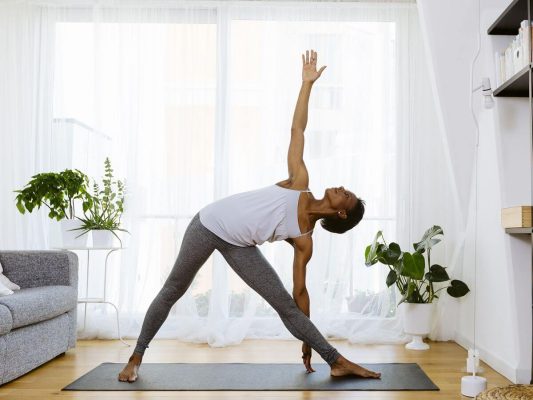
Vinyasa yoga is a more vigorous style of yoga that places an emphasis on fluid transitions between poses. It’s a strenuous exercise that can enhance balance, flexibility, and strength. Vinyasa yoga is excellent for anyone who want to improve their cardiovascular and endurance levels.
Ashtanga Yoga
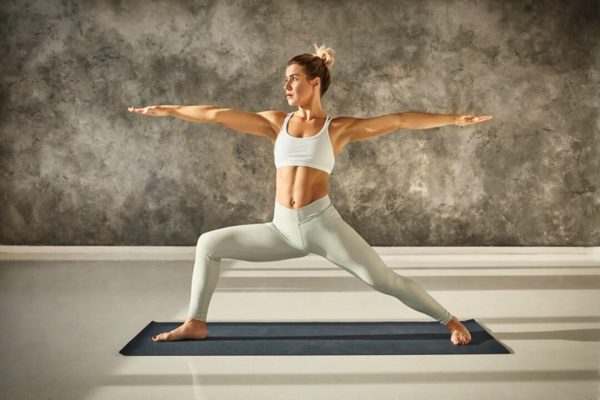
Ashtanga yoga is a challenging and organized style of yoga that incorporates a predetermined order of poses. It’s a strenuous physical activity that calls for a lot of stamina and flexibility. For seasoned yogis who wish to advance their practice, Ashtanga yoga is fantastic.
Bikram Yoga
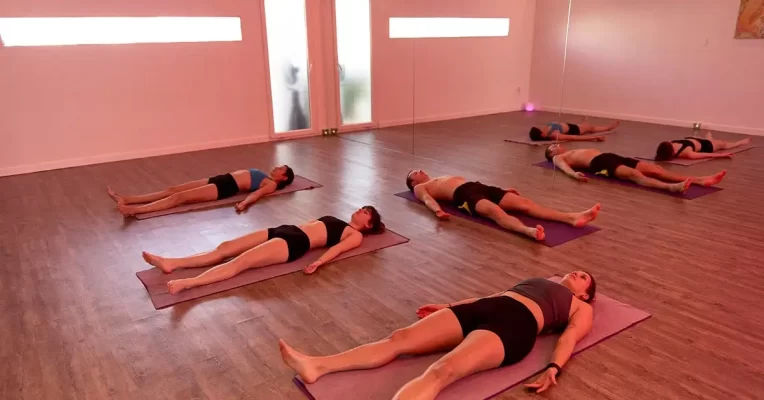
Bikram yoga, commonly referred to as hot yoga, is a strenuous exercise that is carried out in a heated environment (typically at 105°F). It has 26 postures in a predetermined order, two breathing exercises, and is intended to promote flexibility and detoxify the body. Beginners and people with health issues that can be aggravated by heat are not advised to do Bikram yoga.
Yin Yoga
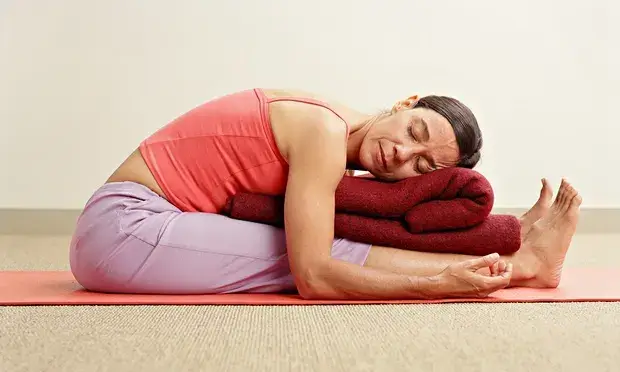
Long-held poses are the main component of the slow, contemplative practice known as yin yoga (usually 3-5 minutes). It targets the body’s deep connective tissues, including the fascia, tendons, and ligaments. Everyone who wishes to increase flexibility, lessen stress, and develop inner serenity should try yin yoga.
Restorative Yoga
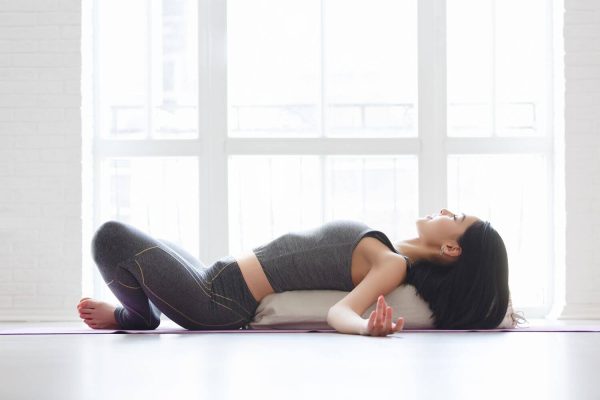
Yoga poses that promote relaxation and recovery for the body and mind are known as “restorative poses.” It supports the body in cozy and passive poses using props like bolsters, blankets, and blocks. For anyone who wishes to feel less stressed, sleep better, and encourage healing, restorative yoga is great.
Kundalini Yoga
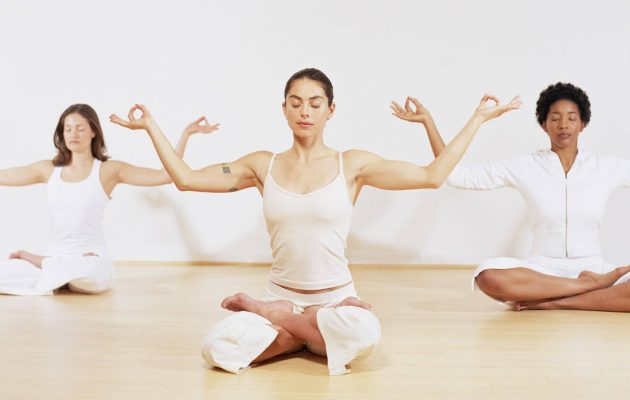
Yoga that incorporates physical postures, breathing techniques, meditation, and chanting is known as kundalini yoga. It is intended to awaken the kundalini energy, which has lain dormant at the base of the spine, and raise it via the chakras. Those looking to connect with their spiritual side and undergo an inner transformation should try kundalini yoga.
Physical Health Improvements
Yoga is an excellent way to improve your physical and mental health. It’s a gentle, low impact workout that’s easy on the joints and accessible to nearly everyone. However, it’s important to follow the guidelines of your health care provider before beginning a new exercise program.
Practicing yoga can lower blood pressure, cholesterol levels, and improve cardiovascular conditioning. It also promotes healthy blood flow.Yoga helps reduce anxiety and headaches. In addition, yoga can help keep sickness at bay. You can also get more restful sleep with a regular yoga practice.
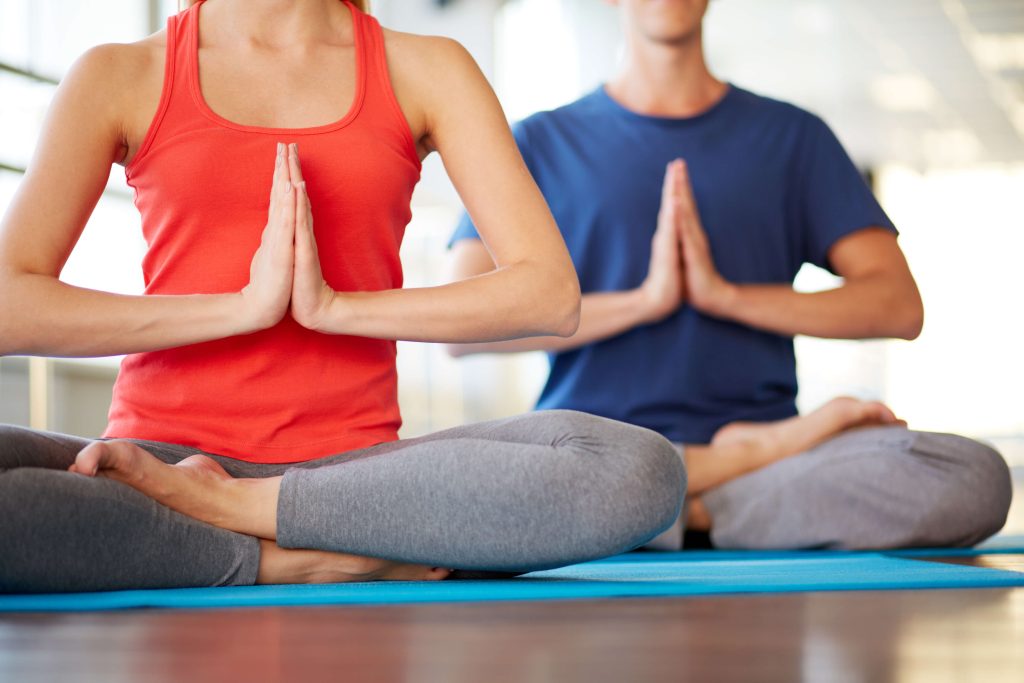
Several studies have shown that practicing yoga can improve the quality of your life. Quality of life (QOL) is a term used by the World Health Organization to describe your health and well-being. Among other factors, QOL is affected by your culture and values.
Another benefit of a yoga practice is increased flexibility. Also older adults often suffer from a loss of mobility. Yoga can enhance flexibility by increasing your balance and flexibility.
In addition to helping you maintain a healthy weight, yoga can prevent osteoporosis. Weight-bearing asanas can help increase bone density.
According to the European Journal of Preventive Cardiology, yoga has a number of cardiovascular benefits. It increases the circulation of oxygen rich blood to the brain, heart, and other organs. This can lower the risk of heart attack and stroke.
Mental and Emotional Well-Being Benefits of Practicing Yoga
Yoga can be an effective tool in reducing stress and anxiety and improving mental and emotional well-being. It involves breathing exercises, yoga postures, meditation and other physical movements.
Some studies have shown that yoga can reduce depression symptoms, improve mood, boost self-confidence, and improve social interaction. Practicing yoga may also help people cope with psychological disorders such as schizophrenia and choatic disorder benefits.
A recent study found that yoga can benefit children who are diagnosed with a psychological disorder. The findings suggest that regular yoga practice can be as beneficial as free therapy or even a prescription drug.

Yoga can be used to improve sleep patterns, reduce anxiety, and alleviate pain. It can also strengthen the mind body connection and encourage healthy eating habits.
Yoga helps the brain recover concentration, and improves self regulation skills. Some studies have shown that it can also reduce feelings of neuroticism and depressive symptoms.
Research has also found that yoga can positively affect emotional and psychological health in older adults. In addition, it has been reported that yoga improves cognitive function in adults with cognitive impairments.
Recent school based interventions using yoga have suggested a positive correlation between yoga practice and child development. Among the positive benefits, children with autism and other learning disabilities demonstrate improvements in their social adaptation scores, while those with intellectual disabilities show IQ ratings that are higher than the general population.
Spiritual Growth and Connection
Yoga is a practice that engages the body, mind and spirit. This can be a transformative experience that will deepen your spirituality. The practices in yoga can help you attain a greater sense of peace, self esteem and mindfulness.
There is evidence that yoga can enhance the immune system and increase muscle strength and flexibility. It can also decrease blood pressure and stress. Practicing yoga also increases self esteem and can enhance self regulation.
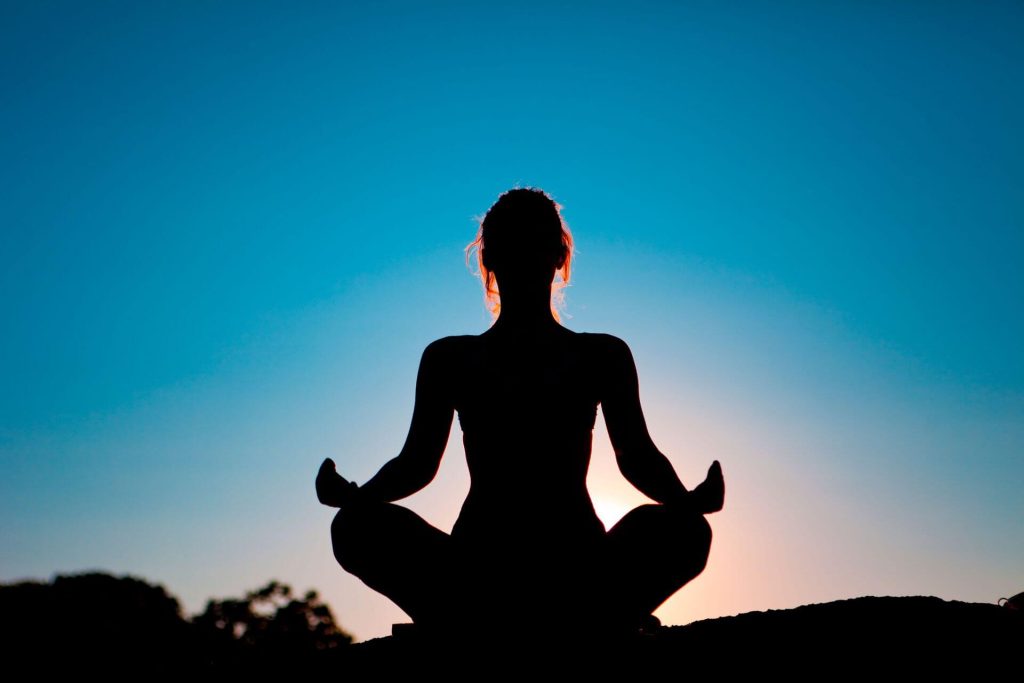
One study explored the relationship between intense yoga practice and spirituality. Researchers compared the results of yoga practice with life satisfaction and the Search for Wisdom, the Conscious Interactions/Compassion scale, the Lightheartedness/Relief scale, and Religious orientation. They found that increased intensity of yoga practice may lead to higher scores in each of the scales.
While most individuals who practice yoga do not consider themselves to be religious, a small number of participants have developed an understanding of the underlying beliefs and practices that underlie yoga. These individuals reported higher levels of Self-Centrality, Religious orientation, and Self-esteem.
Several studies showed that the increased intensity of yoga practice was associated with moderately increased scores on the Conscious Interactions/Compassion and Lightheartedness/Relief. However, the effect sizes were not large.
A more comprehensive study examined changes in the Spirituality of 160 yoga teacher trainees. Two-thirds of the participants were women. Most of them were between 41 and 50 years of age.
Final Thought
In conclusion, yoga has several advantages for both physical and mental health. Yoga can increase flexibility, lower blood pressure, ease anxiety and headaches, improve cardiovascular health, and possibly prevent osteoporosis.
It has been proven to aid with psychological problems and the mental and emotional aspects of stress reduction, depression symptoms reduction, social interaction improvement, and self-confidence building.
Yoga can also enhance spiritual development and connection, which promotes greater tranquility, mindfulness, and self-worth. Given all these advantages, it’s no surprise that yoga has become such a well-liked spiritual and exercise activity on a global scale.
If you are curious about the years-long development process of yoga, you can click here. Or want to read more News. Click Here.
FAQ
Interpretation and belief matter. Some Christians practice yoga because they see it as a physical activity. Some think yoga’s spiritual and religious roots conflict with theirs. Yoga is a personal choice.
It’s possible to learn yoga via instructional videos, books, or online resources, but a competent instructor is advised. Yoga teachers can advise on technique, alignment, and changes.
Jesus didn’t do yoga because it wasn’t invented till years later. Some Christians utilize yoga for prayer or meditation, seeing similarities to their faith.
Yoga is not a religion, but it has Hindu, Buddhist, and other spiritual and philosophical foundations. Some yoga practices emphasize mindfulness and self awareness, while others emphasize devotion to a deity. Each yoga practitioner has their own spiritual journey.
Yoga classes for children and olders are available. But, if you have medical concerns or physical restrictions, you should approach yoga with caution and listen to your body. Before starting an exercise program, visit a doctor.




